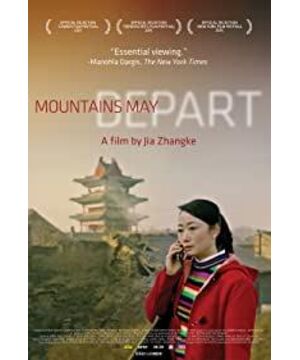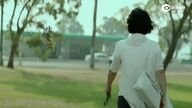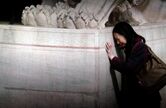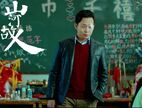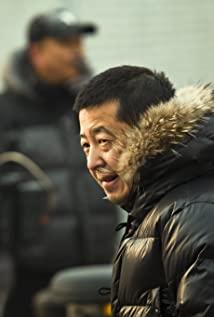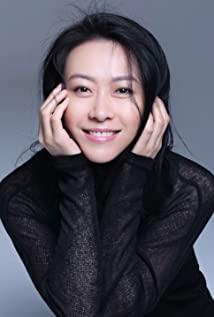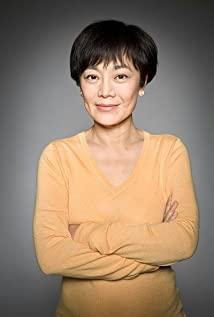There is an obvious chain of language contempt in the film: English - Shanghai dialect - Fenyang dialect. From the perspective of economic status, the former "despise" the latter; from the perspective of cultural sentiment, the former is "despised" by the latter. Of course, in this contempt chain, Shanghai dialect is in an embarrassing position of two devils, similar to the role of a language traitor. In the film, only the stepmother speaks fluent Shanghai dialect. When the stepmother uses Shanghai dialect to talk to Zhang Dale through the iPad , the birth mother Tao became furious.
Father Zhang Jinsheng made his fortune in Fenyang by opening a gas station and operating a coal mine, and later came to Shanghai to engage in "VC". This upstart, who has always spoken Fenyang dialect, has always been a cultural clown in the film. Shanghai and the second married Shanghai Both stepmothers are distinct semi-colonial comprador symbols: although the two never appear in the film, this "absent presence" cannot cover up their role as a bridge between Fenyang in the mainland and Australia, the place of emigration. Before the relationship with the motherland, Shanghai became a temporary destination, and the integration of Shanghai was also the first step in "forgetting one's roots" - before going abroad, the son who grew up in Shanghai had already had a huge gap with his biological mother who stayed in Shanxi. .
After coming to Australia, Shanghai dialect receded, and the direct confrontation between English and Fenyang dialect was clearly highlighted. The son who only speaks English and the father who only speaks Fenyang dialect cannot live under the same roof. This is undoubtedly a bit awkward. Logically, it is said that the son immigrated with his father, and the family language environment is all Fenyang dialect. It is impossible for him to communicate with his father through Google Translate. Let's just say, of course, this is the director's intention to create dramatic contradictions, blunt but understandable.
As a result, Zhang Jinsheng was completely aphasia in Australia. The film implied that he was suspected of committing a crime in China, so he was essentially exiled overseas. He could not integrate into the surrounding living environment at all, and his son who grew up under special circumstances also had a twist. Oedipal psychology, and gradually became rebellious - well, the son is not rebellious, at least, the rebellious child I saw in reality is much more intense than him, in Western film and television works, the expression of rebellious young people The bridge section is even more exaggerated than that.
Wang Anyi has an article "Wandering Language", which talks about the language dilemma faced by overseas Chinese. It is very interesting. I really want to talk about the problem of immigrant aphasia. "Wandering Language" is more transparent than "Legacy in Mountains and Rivers". Of course, I don't think the film is based on aphasia. Aphasia is rooted in the loss of power. For men, it is synonymous with impotence.
2. Impotence:
Zhang Jinsheng from Australia took out a gun and roared: "I used to be forbidden to have a gun, but now I finally have it legally, but there is no enemy. The so-called freedom is a piece of shit!" Zhang Jinsheng wanted to buy a gun to kill when he was in Fenyang Dead love rival, now he has a gun, a lot of guns, but he doesn't know who to shoot at.
When Lu Xun said the formation of nothingness, it probably means this. For an anti-establishment literary and artistic fighter, Orwell is not a problem, it can even inspire the legitimacy of your existence (the former chairman said: "Fighting with people is a lot of fun"); the advent of Huxley is the only way The real draw from the bottom of the pot—or Bozeman’s words: “Orwell was afraid of those who forcibly banned books, Huxley was afraid of losing any reason to ban books, because no one wanted to read anymore; Orwell was afraid of those who forcibly banned books. It is our culture that has become a controlled culture. What Huxley worried about is that our culture has become a vulgar culture full of sensory stimulation, desire, and games without rules.”
Zha Jianying said that the current problem in China is that “Orwell has not left yet. Huxley has already arrived", in "Old Man in Mountains and Rivers", the shadow of this assertion lingers (through the "guilty" nouveau riche capitalists). You have been searching for freedom, but when you have "absolute" freedom, you will find that "freedom is a piece of shit", which even means "the end of history". The advent of "liberal" democracy means that we are completely plunged into a universally homogenized vulgar world where we cannot extricate ourselves - you can't even find an enemy. "Fight Club" said: "We are a generation forgotten by history, with no purpose, no status, no world war, no economic panic, our war is just a battle of hearts, our panic is just our life", in today's In the world, it is true for all generations.
As a result, history is impotent, which is exactly what Max Weber meant when he said that the world "has become more than enough, but less than majestic and magnificent." Zhang Jinsheng's anger even reminded me of Liang Yazhou's classic line in "A Sigh": "When you are young, you have a thief's heart but no thief, and when you get old, you have both the thief's heart and the thief, and the thief is gone." Here, the grand history Impotence is characterized as a specific male "impotence" - masculinity, aggressiveness, and aggressive impotence. As a patriarchal holder, his son's counterattack means Zhang Jinsheng's complete failure.
Not sick, "impotence" is just aging.
3. Aging
"The Sun Also Rises" to Jiang Wen, "Yangtze River No. 7" to Zhou Xingchi, and "Old Man of Mountains and Rivers" to Jia Zhangke, I think, are the signs that these directors have become "old men".
Aging is a cool thing. That means calm, bearing, wise, open-minded, light-hearted, and other adjectives beyond my reach.
It is said that Hemingway's suicide is closely related to his erectile dysfunction in old age (of course, the CIA also played a very disgraceful role), the aging of the once awesome old man, and the replacement of the monkey king in the animal world. No difference. An aging monkey king full of masculinity, when it is driven from the throne, that is, when it is "impotent".
There is a chapter in "The Sun Also Rises" about "guns". Old Tang once pointed a gun at the young team leader. The feeling of powerlessness with a gun and the helpless "impotence" symptoms after aging are very similar to "The Dead in Mountains and Rivers". "The Zhang Jinsheng in " is exactly the same.
When you get old, you find yourself getting something you've been working on your whole life, and then that thing doesn't work.
However, it has become the ultimate truth realized by the old men who have been vigorous and vigorous.
Aging means reconciliation, and for movies, it means (maximum) reconciliation with the audience. Therefore, "The Old Man of the Mountains and Rivers" will be the best box office movie of Kechang Jia (also thanks to the number of screens that have been rotten all the year round but have grown rapidly).
The era of Zhang Jinsheng has passed, and the rise of Zhang Dale is inevitable. In the middle school political textbook, it is said that dialectical materialism believes that metabolism is the basic law of the universe.
Of course, the above discussions are all about straight men's cancer. For these ridiculous men, they have never really faced women with all their hearts, except their mothers.
4. Oedipus
is a false proposition. They don't love their mothers, they just feel that mothers can be a problem and that they need the motherly care of a woman when they are vulnerable.
That's all.
Zhang Daole will not forget his mother, how old was he when he went to his grandfather's funeral? No impression of your mother at all? After going to Australia for so many years, my mother didn't even make a phone call? When I was in China, I was angry that my son had a video call with his stepmother, but he never called his own son through a video call or even sent a WeChat message?
So, illogical, just for drama.
Zhang Daole then slept with the old woman, the old woman of her grandmother's age. But not obscene.
Straight men can never understand women, starting with their mothers. Just like the 9-year-old boy Liang Shengjie wrote poems: "I have no love with my mother/I just like her tits", "I feel like my mother is like a little bitch/Because she meets all the standards of a cheap cat".
Tao's character image, if strictly scrutinized, is not very established in "The Old Man of Mountains and Rivers", which also comes from not understanding.
Tao is so lonely, an old man, leading an old dog, with a flick of his finger. Twenty-six years ago, when the disco dance was hot, now he is dancing alone.
No matter what, just dance in the square, this is called square dance.
5. Square dance
those discos. Those old Cantonese songs. Like "Hong Kong 囧", it is the memory of youth in the minds of the post-70s old men.
The disco dancers were all scattered by the wind. Liang Zi became a miner. He must have suffered from silicosis. .
Tao seems to have not changed much, Tao has become a symbol of stubbornness.
Tao has been divorced and seems to have never remarried; Tao has run a gas station and is a little strong woman.
Tao has an insincere contempt for the material world—starting from her heartfelt mockery of Zhang Jinsheng's foreign name.
Tao didn't even want his own son.
Tao has nothing, Tao's parents are gone, the (former) husband and children are gone, but Tao stands still in Fenyang.
And square dancing.
The mountains and rivers pass away, the old people go away, only the square dance remains.
【WeChat account: moviedianying】
View more about Mountains May Depart reviews


